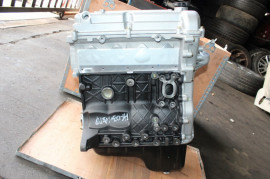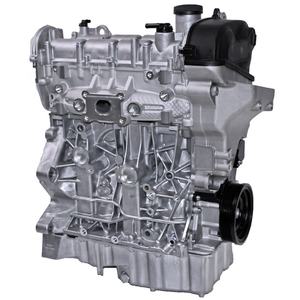Import Engines: Tips for Setup and Maintenance
A Detailed Comparison of Various Kinds Of Import Engines and Their Applications in Different Automobiles
From the performance of turbocharged engines to the environmental friendliness of electrical powertrains, the spectrum of import engines available in today's market caters to a wide variety of driving requirements and choices. Whether it's the torque of a diesel engine or the unconventional design of a rotating engine, understanding the nuances of each type and exactly how they align with specific automobile demands can substantially influence performance, fuel economic situation, and overall driving experience.
Turbocharged Engines
Turbocharged engines, recognized for their ability to improve power result successfully, have become significantly common in modern vehicle styles. By utilizing exhaust gases to drive a turbine that compresses inbound air right into the engine, turbochargers successfully boost the amount of air and gas mixture that can be combusted, leading to enhanced performance without considerably boosting engine dimension. This innovation allows suppliers to downsize engines, causing far better gas effectiveness while preserving power levels comparable to bigger, naturally aspirated engines.

Crossbreed Engines
With the developments in engine technology facilitating boosted efficiency and effectiveness, the automobile sector has seen a rise in the assimilation of hybrid engines as a lasting remedy for power shipment. Hybrid engines incorporate the benefits of both inner combustion engines and electrical motors to offer improved fuel efficiency and lowered discharges. By perfectly switching over between both power resources or utilizing them all at once, hybrid engines provide versatility in different driving conditions.

Moreover, hybrid modern technology is not restricted to a specific vehicle type, with applications ranging from small cars to bigger SUVs and also high-performance cars. As environmental issues and fuel efficiency regulations become progressively popular, hybrid engines represent a considerable step towards sustainable transportation solutions.
Electric Engines
Electric engines have revolutionized the automotive sector with their reliable and environmentally-friendly power shipment systems. import engines. These engines operate by converting electrical power right into mechanical energy, providing a quiet and smooth driving experience. Unlike typical burning engines, electric engines produce absolutely no tailpipe exhausts, minimizing the total carbon footprint of lorries and helping fight air contamination
One of the key benefits of electric engines is their high energy efficiency, generally transforming over 80% of the electric energy right into propulsion. This effectiveness equates right into expense savings for customers via decreased fuel expenses. In addition, electric engines require much less maintenance contrasted to internal burning engines, as they have fewer relocating parts that can wear out gradually.
Electric engines are generally used in electric automobiles (EVs) and hybrid electric cars (HEVs) On the various other hand, HEVs incorporate electric engines with standard inner combustion engines to optimize fuel effectiveness and lower emissions.
Diesel Motor
Diesel engines are renowned for their exceptional gas efficiency and durable performance in a variety of auto applications. These engines operate by pressing air in the cylinders, which causes high temperatures that ignite the infused diesel fuel without the requirement for ignition system. This combustion approach provides diesel motor with greater torque outputs compared to gasoline engines, making them excellent for durable lorries like trucks, buses, and building and construction equipment.
Among the crucial advantages of diesel useful site motor is their superior fuel efficiency, as they can travel further on a gallon of fuel contrasted to fuel engines. This performance is particularly advantageous for long-haul transportation and commercial fleets, where lowering gas prices is a considerable aspect. Furthermore, diesel motor are understood for their resilience and durability, calling for much less maintenance over their lifespan compared to gasoline engines.
Recently, innovations in diesel engine modern technology have additionally focused on reducing discharges to fulfill stringent ecological laws. Modern diesel motor are furnished with innovative discharges manage systems, the original source such as diesel particulate filters and careful catalytic decrease, which aid reduce pollutants launched right into the atmosphere - import engines. These advancements have actually made diesel engines cleaner and more eco-friendly while preserving their effectiveness and performance attributes
Rotating Engines
Distinguished for their special style and performance features, rotating engines provide a distinct choice to conventional combustion engine modern technologies like diesel engines. These engines, also called Wankel engines, operate a different concept contrasted to traditional piston engines. Instead of making use of pistons relocating up and down in cylinders, rotating engines use a triangular blades that revolves in an epitrochoidal course within a chamber. This layout leads to a compact engine with high power outcome relative to its dimension and weight.

Final Thought
To conclude, the comparison of different kinds of import engines highlights the diversity of options readily available for different cars. Turbocharged engines offer raised power and performance, hybrid engines combine typical and electric source of power for boosted fuel economy, electrical engines supply a clean and lasting alternative, diesel motor are known for their durability and torque, and rotating engines offer a special style with possibility for high performance. Each engine type has its very own staminas and applications in the automotive market.
Additionally, hybrid engines contribute to a quieter driving experience and frequently give a smoother acceleration contrasted to traditional interior burning engines.
Popular for their one-of-a-kind design and performance features, rotary engines use a distinctive alternative to standard burning engine technologies like diesel engines. These engines, likewise known as Wankel engines, operate on a different concept contrasted to conventional piston engines. In spite of page these constraints, rotary engines continue to draw in suppliers and lovers looking for a different engine innovation with distinct advantages.
Turbocharged engines provide boosted power and efficiency, crossbreed engines combine electrical and standard power resources for boosted gas economy, electric engines provide a clean and sustainable alternative, diesel engines are known for their sturdiness and torque, and rotating engines supply an unique design with potential for high performance.